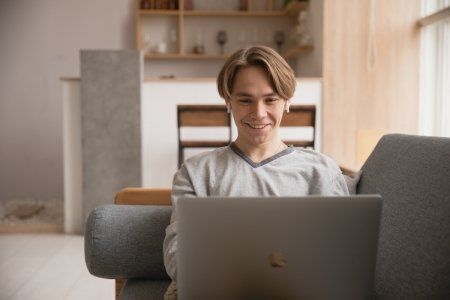The Pandemic, Zoom and Polyvagal Theory
I recently saw a pre-publication version of an editorial by Stephen Porges, “The COVID-19 Pandemic is a Paradoxical Challenge to Our Nervous System: A Polyvagal Perspective.”1
In it he says, “The pandemic impacts on our biological imperative to connect.”
Polyvagal theory says that as mammals we need to connect to co-regulate. In fact, we use the minimal cues that come from the face and the tone of voice of each other to co-regulate our nervous systems. These cues let us know we are safe.
The problem is that during the pandemic, we are being given the imperative that we need to stay away from each other in order to be safe. Dr. Porges says, “Thus, our nervous system is simultaneously being challenged by incompatible demands demanding both avoidance of contact with the SARSCov2 virus and the fulfillment of our biological imperative of connecting with others to feel calm and safe.”
Dr. Porges goes on to talk about the use of video conferencing to help mitigate this paradox. He says, “To reduce the burden on our nervous system and on [others’] nervous systems, we need to retrain ourselves in the use of the portals for social communication that we have available. This will mean that we are more present and less distractible, while providing cues of safety and connectedness through spontaneous reciprocal co-regulatory facial expressions and vocal intonations.”
So that got me thinking. How can we maximize the use of teleconferencing technology to provide the cues for safety toward each other to increase co-regulation?

Here are a few ideas that can be useful in different contexts. Feel free to comment with your own ideas. It might also be important to recognize that having the intent to do this may be as helpful as the technique itself.
- Make sure that you smile and you have a pleasing, good tone of voice.
- Bring your face closer to the camera and with a calm voice, friendly face, and friendly eyes say positive and supportive things that are relevant for the context.
- Sing together or do “om”s together while you teleconference.
- Breathe together while looking into the camera.
- Laugh together (even fake it first – that will eventually trigger real laughter)
- Do a brief energy healing exercises together (See http://r4r.support)
I look forward to seeing your ideas.
Author
Robert Schwarz, PsyD, DCEP has been a licensed psychologist for 30 years. Bob has trained therapists internationally on trauma treatment, panic and anxiety, energy psychology. For the last 12 years Bob has served as executive director for the Association for Comprehensive Energy Psychology. He has organized over 25 conferences on energy psychology trauma treatment, Ericksonian hypnosis, brief therapy, that trained over 18,000 therapists. Bob also designed ACEP’s online program The Science of Energy Healing. He has authored 3 books: Tools for Transforming Trauma, PTSD: A Clinician’s Guide and We’re No fun Anymore as well as numerous articles and papers.
Want to learn more about energy psychology and ways you can help your clients more effectively? Join us online for the 22nd International Energy Psychology Conference, “The Art & Science of Transformational Change.” Livestreaming May 14-17, 2020.
1Porges, S. W. (2020) The COVID-19 Pandemic is a Paradoxical Challenge to Our Nervous System: A Polyvagal Perspective. Clinical Neuropsychiatry (in press)
Photo by Ekaterina Bolovtsova



